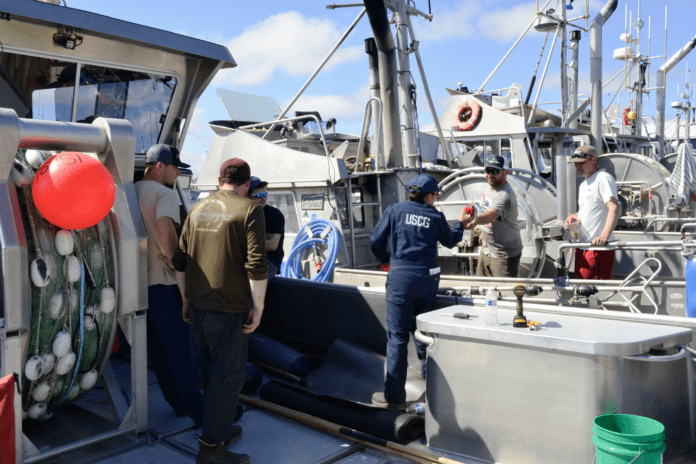
U.S. Coast Guard officials are congratulating Alaska’s fishing industry for a second fatality-free commercial fishing season in fiscal year 2022.
Scott Wilwert, commercial fishing vessel safety coordinator for the Coast Guard’s 17th District, said the fishing industry deserves the credit for staying safe.
“The efforts of Coast Guard fishing vessel examiners and maritime training organizations like the Alaska Marine Safety Education Association (AMSEA) and the North Pacific Vessel Owners Association (NPFVOA) also play a vital role in preparing fishermen to survive an incident at sea and utilize the equipment they have onboard during an emergency,” Wilwert said.
The state’s first fatality-free year for commercial fisheries was 2015, the year that dockside safety exams became mandatory for vessels operating beyond three nautical miles from the territorial sea baseline.
These statistics are measured in the federal fiscal year, running from Oct. 1 to Sept. 30. An operational fatality is defined as a death occurring as a result of an incident at sea, including a man overboard, a sunken or lost vessel or an on-deck accident, to name a few.
“We definitely want to keep this momentum going through calendar year 2022 and beyond,” said Wilwert. “The linear trend of operational fatalities in the commercial fishing industry in Alaska has been steadily downward, and we want to continue to work with the industry to keep it that way. Dangers are ever present in the fishing industry and are the reason we’re encouraging mariners to remain vigilant when it comes to crew training and safety.”
Coast Guard officials remind fishing vessel owners and operators to maintain their vessel’s lifesaving equipment, to ensure crew on deck wear personal floatation devices and to conduct regular shipboard drills to maintain crew proficiency in operating emergency equipment.
The Coast Guard also encourages owners and operators to review and be knowledgeable of the general maintenance and upkeep of their vessels. Minor hull leaks and machinery failures should be properly repaired and documented. Vessel operators need to know operating constraints that may pertain to their vessels, including awareness of the risks of overloading a vessel, icing, and operating outside the restrictions of their stability letters.





